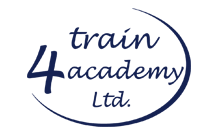Call Us 01482 861 040
Online Training Courses
Search for a course by typing below
Our library of online training courses contains motivating and engaging learning from a variety of sectors, ranging from food hygiene, health & safety to compliance, soft skill and fire safety training. Each course has been written by a professional SME (Subject Matter Expert) and designed to be achievable for each individual, ensuring that they are able to learn at their own pace to gain the knowledge they need through captivating online e-learning content.
Unsure of what you need? Our team are more than happy to assist you in finding the perfect course or working together, provide the best suited training package for your business. Our online training courses are a great way to ensure that you or your business are compliant through selecting the correct training, some available in various levels and easily accessible via our LMS.
Aswell as providing courses for individuals our compliance training solution will aid those that are in the position of overseeing teams training, with team leaders are able to monitor their departments overall compliance process.
Abrasive Wheels
The use of abrasive wheels is regulated by the Provision and Use of Work Equipment Regulations 1998 (PUWER) This Act states that it is a legal requirement for those using potentially dangerous equipment to be appropriately trained. This online training course is an essential requirement for all who use abrasive wheels in their workplace.
RoSPA Assured Duration: 30 Minutes
Accident Reporting (RIDDOR)
The reporting of Injuries, Diseases and Dangerous Occurrences Regulations 2013, puts the responsibilities for reporting accidents in the workplace onto the “responsible person”, usually owners, managers and supervisors in the smaller companies.
RoSPA Assured Duration: 30 Minutes
Allergen Awareness
All who are involved with preparing food must understand the dangers of allergens and the importance of correct handling. They must be aware of the 14 main allergens and where they may be used in food. This online training course is most important and addresses the need for all to be trained in this important topic.
RoSPA Assured Duration: 90 Minutes
Allergen Awareness – Manufacturing
There are between 20 – 30 deaths from anaphylaxis (a serious allergic reaction) in the UK each year, and 6% of children suffer with food allergies. Therefore, it is essential that anyone who works within the food manufacturing industry has a good working knowledge and understanding of these food hazards.
RoSPA Assured Duration: 60 Minutes
Anti-Bribery
Bribery is an offence, but sometimes actions taken without intending harm, could be regarded as bribery. Understanding what could be regarded as bribery may save company officers much heartache and money. This course is an excellent overview of the Act and will help companies stay away from prosecution.
CPD Certified Duration: 30 Minutes
Anti-Money Laundering
Terrorists require funds, and in order to prevent them benefiting from honest sources, the Money Laundering Terrorist Financing and Transfer of Funds Regulations 2017 was passed. This course will help those who handle finances to understand the implications of this law & how they can play their part in preventing terrorists receiving funding illegally.
CPD Certified Duration: 40 Minutes
Asbestos Awareness
If your business premises pre-dates 2000, asbestos could be present. If premises need refurbishment or maintenance work, asbestos particles could be disturbed, releasing dangerous particles into the air. Anyone who works in such a building, including anyone carrying out maintenance needs to be aware of how to protect themselves and others.
RoSPA Assured Duration: 60 Minutes

